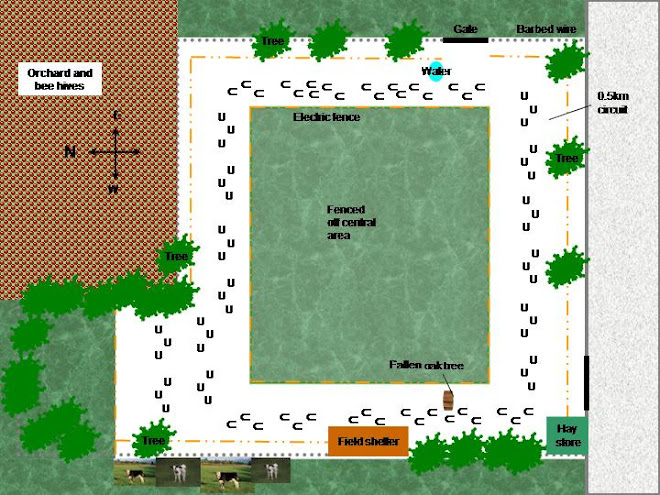Some will swear it is ok in moderation, many can eat a fair bit and be absolutely fine, for others even a small amount is not so good.
Yes folks, today's post is about sugar :-)
The chemical formula for almost all sugars is CnH2nOn (n is between 3 and 7). The last time I checked this holds true for organic sugar too.......... and yes organic sugar has the same number of calories and the same potential to rot your teeth and in excess upset the balance of your horse's hind gut.
As you know, horses have evolved to eat lots of low sugar, high fibre forage. They are so good at it that they can survive in areas too harsh for cows and sheep. Yes, get that, horses are tougher than cows or sheep.
In future posts I may get into more of the biology of why too much sugar is bad for our horses, but for now can I urge you to read the small print of what you are feeding your treasured friends.
As an example; - a feed shop near me is selling grass seed advertised as 'Suitable for low sugar pony paddocks.' Well I read the label, it is over 70% Rye grass (seed) and when I checked out the varieties of Rye included (yes I am a geek), they average over 18% sugar in the growing season. Now bearing in mind we are aiming for less than 10% - how the ? is that low sugar? It certainly isn't suitable for horses or ponies.
Ditto various products marketed as safe for laminitics or 'low sugar'. Don't read the marketing guff on the side of the bag (in the UK) look for the white label that should be stitched on (it often falls off). This will detail how much sugar is in the bag, as well as listing the ingredients. And don't be fooled; many molasses free products aren't, instead they contain a modified form of molasses which has had a tiny bit of the sugar taken out. But it is still sweet and sugary!
Some will argue that a bit of sugar never did any harm. Well the owners of the horses with behavioural problems; that on a low sugar diet have transformed into paragons of good behaviour, but when slipped the odd carrot or bit of grass and turn into 'monsters' will argue otherwise :-) Guys you know who you are! :-)
And let's not forget the LGL's sound on well soaked hay, but footy when not.
Shoes mask weaknesses, barefoot highlights strengths
Monday, 12 September 2011
Subscribe to:
Post Comments (Atom)








1 comment:
Great topic! I look forward to reading more.
Post a Comment